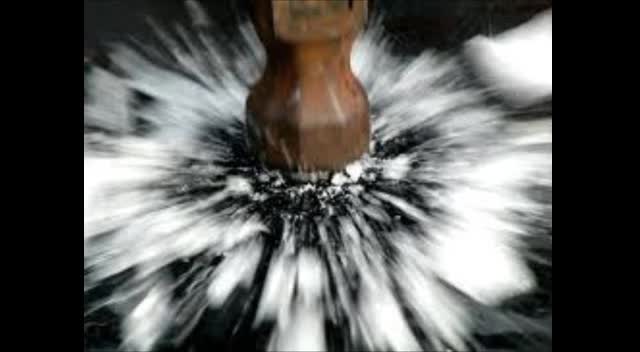Abraham's
father, Terach was an idol-manufacturer. Once he had to travel, so he left
Abraham to manage the shop. A woman came
in with a basket of bread. She said to Abraham, "Take this and offer it to
the gods.” Abraham got up, took a hammer
in his hand, broke all the idols to pieces, and then put the hammer in the hand
of the biggest idol among them.
When
his father came back and saw the broken idols, he was appalled. "Who did
this?" he cried. "How can I hide anything from you?" replied
Abraham calmly. "A woman came with a basket of bread and told me to offer
it to them. I brought it in front of them, and each one said, "I'm going
to eat first." Then the biggest one got up, took the hammer and broke all
the others to pieces."
"What
are you trying to pull on me?" asked Terach, "Do they have
minds?"
Said Abraham: "Listen to
what your own mouth is saying? They have no power at all! Why worship
idols?"
Midrash Genesis Rabbah
The
midrash about Abraham smashing his father’s idols is perhaps the best known of
all rabbinic tales. It is so oft-told
that many Jews mistakenly believe it’s found in the Torah itself. In fact, Torah says nothing about Terach
being an idolator. So why is this story
so popular?
I
believe it points to the centrality of iconoclasm in Jewish life. According to the midrash, Abraham’s call
commences only after he destroys his father’s gods. One might think that his life journey starts
with the command “Lech L’chah!—Go forth!”
that opens this week’s portion and bestows its name—but it doesn’t. Instead, all that Abraham will accomplish
begins with an act of destruction. In
order to create something new, Abraham must first question everything that came
before him. He is not content to maintain
the status quo for its own sake—he’s determined to blaze his own path. Abraham’s unwavering pursuit of truth leads
him to monotheism, to a belief in the one God who will enter into a covenantal
relationship with him and the Jewish people to follow. We are his heirs.
It is
no accident that Jewish iconoclasts have changed the world time and again. Our prophets had the chutzpah to challenge societal norms—and even argue with God. In our time, Jewish artists, scientists, and
social activists have maintained this proud tradition of questioning
established traditions and putting forth visions of a better world.
This
week, consider taking some time to reflect on your own past. What “idols” did you have to shatter to
launch yourself on your own journey into adulthood?

No comments:
Post a Comment